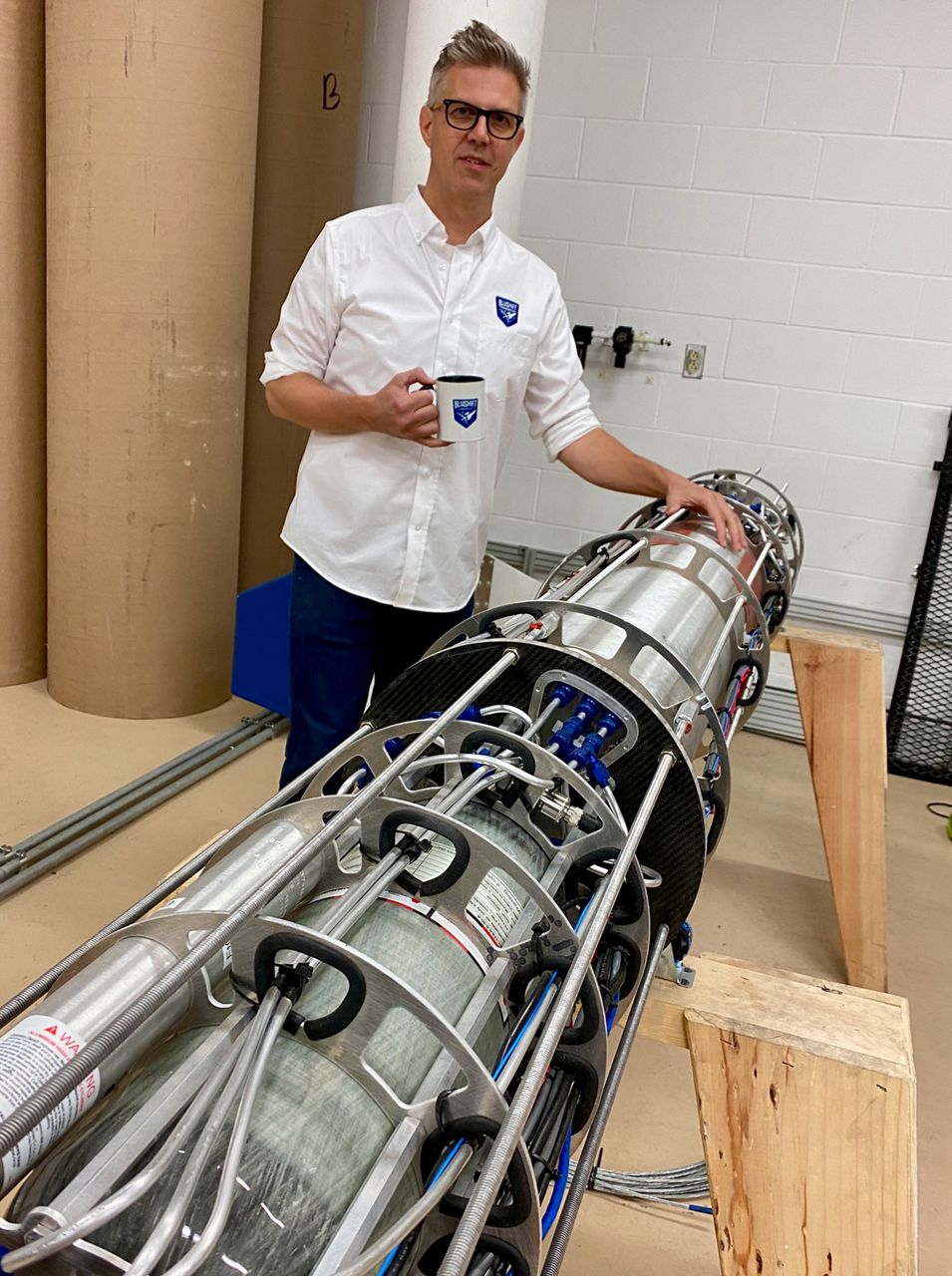A Brunswick-based aerospace company will locate major operations in the Washington County town of Steuben, bringing the potential for 150 to 200 new jobs to the area in the next seven years.
BluShift Aerospace, which plans to launch orbital and suborbital rockets carrying small satellites, recently asked towns in Downeast Maine to submit proposals to host manufacturing and mission control. The move came after the town of Jonesport rejected bids by the company to locate there.
Company founder and CEO Sascha Deri said in a statement issued Wednesday that the Steuben area will have the workforce needed, which will include welding, composites work and machining. The company uses a bio-derived fuel, which it describes as a clean and sustainable way to launch rockets into space.
“bluShift has a competitive advantage because we offer small satellite customers much more frequent and flexible launch times using a proprietary non-toxic, bio-derived fuel, a standout in an industry that is reliant on fossil fuels,” Deri said in the statement.
Stuben Board of Selectmen Chairman Larry Pinkham said the town was eager to step up when Jonesport rejected the company, particularly since Steuben had taken a pass on Jackson Lab, the Bar Harbor-based biomedical research institute.
“Many years ago, this town turned down the opportunity to host a little research operation called Jackson Lab,” Pinkham said in the statement. “I’m pretty sure that the residents of Steuben didn’t want to make that kind of mistake again.”
With 1,500 employees, the lab is the largest employer in Downeast Maine, according to its website.
BluShift, which launched its first rocket in Maine in January 2021 in Aroostook County, will launch future rockets off a boat. It plans to launch four to six rockets in the first few years, eventually growing to 32 annually, likely between April and October.
BluShift launches rockets to the polar orbit, which is when a satellite passes above the north and south poles.
“Maine is an ideal location for launching rockets because, unlike other U.S. locations, it can offer a safe polar orbit trajectory over the Atlantic Ocean that does not endanger human populations or wildlife,” Deri said. “Because of the company’s nontoxic, bio-derived fuel, when the small rockets return to Earth they won’t endanger humans, pollute the ocean, or become a liability to Maine’s valuable fisheries.”



